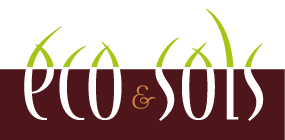Eco&Sols is a Joint Research Unit with 70 permanent staff from INRA, IRD, Montpellier SupAgro and CIRAD.
The research undertaken by Eco&Sols sets out to improve the understanding of the role of soil organisms and plants and the interactions between them and their environment in biogeochemical cycles - mainly C, N and P cycles - within soils and agroecosystems.
The biogeochemical cycles of carbon (C) and nutrients (N and P) are studied mainly in Mediterranean and tropical agrosystems, in particular the roles of the various components of the soils (clay particles, aggregates, pores, etc), the plants (roots, stems, leaves and fruits) and the atmosphere. The nature of the biotic and abiotic determinants of the C and nutrient flows is studied in a range of agronomic situations taking account of changing land uses and global climate change.

Account is taken of all ecosystem services that have support and regulation functions, their trade-offs and the resilience of the agrosystems to climate change and changes in land use.
Research is centred on the concept of ecological engineering to determine how C, N and P flows can be regulated to achieve long-term, sustainable production in tropical and Mediterranean agroecosystems with low inputs. The research is based on a comparison of crop production systems that incorporate the following agronomic practices:
- management of organic and mineral inputs: types of amendment and application methods
- introduction of effective genotypes (plants, symbiotic organisms)
- use of pluri-specific populations of perennial or annual plants that can be associated and exploited in different ways
- other agroecological practices (no-till and direct drilling, organic farming, agroforestry, ramial chipped wood, zaï, etc).
The research undertaken by the Eco&Sols is in the fields of functional ecology, plant ecophysiology and soil biogeochemistry. It is based on observation, experiments and modeling. The scale of the studies ranges from microsite/organism in the laboratory up to plot/stand, and even multiple plots and regional scale.
Funding for the research projects comes from various sources, such as research institutes, the French National Research Agency, foundations, ADEME, ministries (agriculture, environment, foreign affairs, Europe and many other partners.
Eco&Sols is organised around 3 research themes which share 2 common disciplines






